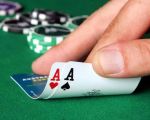- get-started-at-the-table
- understanding-basic-rules-and-hand-rankings
- table-etiquette-and-chip-management
- essential-strategies-for-successful-play
- observing-players-and-adapting-your-game
- bankroll-management-and-mental-resilience
1. Get Started at the Table
Walking into a casino can be overwhelming, especially if it’s your first time learning how to play poker at a land-based casino. The first step is choosing your game—Texas Hold’em is the most common—and finding a table that fits your comfort zone. Look for tables with lower stakes and friendly players when you’re starting out. Dealers and floor staff are usually happy to explain game flow and minimum bets, so don’t hesitate to ask questions.
Some casinos run daily tournaments offering good value. These events often come with structured blinds and break times, which can give you a clear pace. For newcomers, joining a tournament can be less intimidating than jumping into a cash game with seasoned players. Watching a few rounds before buying in helps you observe how the table operates and how players react to different situations, easing your transition into active play.
2. Understanding Basic Rules and Hand Rankings
Before you sit, you must master fundamental knowledge. Know the hand ranking chart—from high card up to royal flush. Understand betting rounds: pre-flop, flop, turn, and river. Land-based casinos often enforce rules like “no string bets” and “must be all in to be eligible for tournament prizes.”
One careful player I met in Atlantic City, Raj, kept a small notepad in his chip tray to quietly remind himself which hands to play and which moves belong to each round. Watching Raj play solid, textbook poker made me realize even experienced players review basics—it’s the foundation of winning in live poker.
3. Table Etiquette and Chip Management
Playing in person means more than knowing rules—it’s about respect and presence. Don’t act out of turn, avoid splashing the pot, announce raises clearly, and stack your chips neatly. Dealers notice and may call out improper behavior, affecting both your table image and gameplay.
One dealer in Vegas shared that players who handle chips with care and announce actions clearly are “easier to manage,” which leads to smoother gameplay and more patient attention from staff. That slight respect can sometimes buy you extra seconds if you’re unsure about your next move.
4. Essential Strategies for Successful Play
Winning poker isn’t all luck. Knowing which starting hands to play based on position is crucial. In early position, tighten up—favor premium pairs and big Broadway cards. In late position, you can widen your range, especially if opponents have folded.
Pay attention to pot odds and implied odds. If the pot is $50 and your opponent bets $10, you’re facing 60-to-10 (6-to-1) odds. If you only need a 5-to-1 return to justify a call based on drawing probabilities, it’s often mathematically correct.
Bluffing works only when timed properly. Bluffing into multiple players rarely succeeds. Save your big bluffs for heads-up situations with fewer opponents. Real-time observation—like noting who plays back at river—can guide bluff timing and size.
5. Observing Players and Adapting Your Game
In-person poker offers visual cues—timing tells, physical demeanor, bet sizing. Watch how your opponents handle chips, talk, or play certain board textures. That insight helps you make better reads and adjust your strategy on the fly.
Missy, a player I talked to in Reno, credits live tells for her most profitable reads. She noticed one player’s hesitation before large bets—consistent hand strength signal. Translating these small nuances into decisions helped her shift from breakeven to small profit consistently.
6. Bankroll Management and Mental Resilience
Successful poker players treat playtime like a business. Set a poker bankroll separate from your living expenses. A common rule is dedicating at least 20 buy-ins at your chosen stakes. For a $1,000 bankroll, avoid $50 buy-in tables until you’ve grown that buffer.
Maintain emotional control. Live poker sessions can be long, intense, and tiring. Take breaks, step away after big losses, and avoid playing under stress or fatigue.
In live tournaments I’ve followed through CasinoScope events, the winners are often those who manage tilt and stay disciplined under pressure. It's not just about cards—it’s about self-control and strategic timing.








